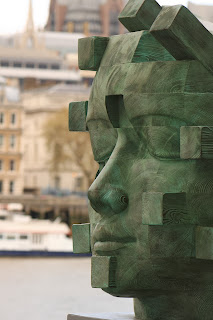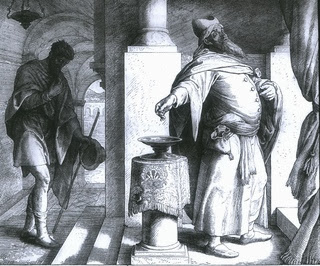Early in every morning of his adult life, the French writer and poet, Paul Valery, wrote something in his diary, called the Cahiers, translated as Notebooks.
He said, "Having dedicated those hours to the life of the mind, I thereby earn the right to be stupid for the rest of the day."
He said, "Having dedicated those hours to the life of the mind, I thereby earn the right to be stupid for the rest of the day."
 |
| Paul Valery |
October 30, 1871 -July 20, 1945
Sadly, unlike Valery, I am not a morning person, and am often stupid for a greater part of the day, sometimes even extending for a whole day into evening.
Valery was known for his aphorisms so here's a few gems.
To write regular verses destroys an infinite number of fine possibilities, but at the same time it suggests a multitude of distant and totally unexpected thoughts.
A man is a poet if difficulties inherent in his art provide him with ideas; he is not a poet if they deprive him of ideas.
In poetry everything which must be said is almost impossible to say well.
A poem is never finished, only abandoned.
Politeness is organized indifference.
God created man and, finding him not sufficiently alone, gave him a companion to make him feel his solitude more keenly.
God made everything out of nothing, but the nothingness shows through.
Serious-minded people have few ideas. People with ideas are never serious.
Politics is the art of preventing people from busying themselves with what is their own business.
War: a massacre of people who don’t know each other for the profit of people who know each other but don’t massacre each other.
A man who is ‘of sound mind’ is one who keeps the inner madman under lock and key.
The folly of mistaking a paradox for a discovery, a metaphor for a proof, a torrent of verbiage for a spring of capital truths, and oneself for an oracle, is inborn in us.
A man’s true secrets are more secret to himself than they are to others.
Man’s great misfortune is that he has no organ, no kind of eyelid or brake, to mask or block a thought, or all thought, when he wants to.
Our judgments judge us, and nothing reveals us, exposes our weaknesses, more ingeniously than the attitude of pronouncing upon our fellows.
Two dangers constantly threaten the world: order and disorder.
A great man is one who leaves others at a loss after he is gone.
Science means simply the aggregate of all the recipes that are always successful. All the rest is literature.
The history of thought may be summed up in these words: it is absurd by what it seeks and great by what it finds.
A man is infinitely more complicated than his thoughts.
Books have the same enemies as people: fire, humidity, animals, weather, and their own content.
The determinist swears that if we knew everything we should also be able to deduce and foretell the conduct of every man in every circumstance, and that is obvious enough. But the expression know everything means nothing.
The future, like everything else, is not what it used to be.
We are enriched by our reciprocate differences.
Long years must pass before the truths we have made for ourselves become our very flesh.
At times I think and at times I am.
The best way to make your dreams come true is to wake up.
A lovely cover version of the Sons and Daughters song
Wake Up O You Sleepers !
I like this better than the original.
Lyrics
We have seen the pain that shaped our hearts
And in our shame we’re still breathing
Cause we have seen the hope
Of Your healing
Rising from our souls
Is the feeling
We are drawing close
Your light is shining through
Chorus
So wake up
Wake up, wake up
All you sleepers
Stand up
Stand up, stand up
All you dreamers
Hands up
Hands up, hands up
All believers
Take up your cross
Carry it on
All that You reveal with light in us
Will come to life and start breathing
Cause we have seen the hope
Of Your healing
Rising from our souls
Is the feeling
We are drawing close
Your light is shining through
Chorus:
So wake up
Wake up, wake up
All you sleepers
Stand up
Stand up, stand up
All you dreamers
Hands up
Hands up, hands up
All believers
Take up your cross
Carry it on
Bridge:
Here we stand our hearts are Yours
Not our will but Yours be done (x4)
The exiled Guatemalan poet, Julia Esquivel wrote during the 30 years in which Guatemala suffered unspeakable political violence. She wrote during the time many thousands of Maya, Quichez and other indigenous groups were savagely murdered. Hundreds of villages were literally wiped off the face of the earth.
Julia was a voice for peaceful nonviolent resistance and used her pen to tell the world about the immense suffering her people endured.
Her most famous poem is Threatened With Resurrection.
…There is something here within us
Which doesn’t let us sleep, which doesn’t let us rest,
Which doesn’t stop pounding deep inside,
It is the silent, warm weeping of Indian women without their husbands,
It is the sad gaze of the children
Fixed there beyond memory,
In the very pupil of our eyes
Which during sleep, though closed, keep watch
With each contraction of the heart
In every wakening…
What keeps us from sleeping,
Is that they have threatened us with resurrection!
Because at each nightfall,
Though exhausted from the endless inventory
Of killings since 1954,
Yet we continue to love life,
And do not accept their death!
…Because in this marathon of Hope,
there are always others to relieve us
in bearing the courage necessary
to arrive at the goal which lies beyond death…
Accompany us then on this vigil
And you will know what it is to dream!
You will then know how marvelous it is
To live threatened with resurrection!
To dream awake,
To keep watch asleep
To live while dying
And to already know oneself resurrected!
(by Julia Esquivel, Guatemalan poet and theologian, from her book, Threatened With Resurrection: Prayers and Poems from an Exiled Guatemalan, Brethren Press, 2nd Edition, published 1994. See Amazon.com for more details.)
Related and Source articles














